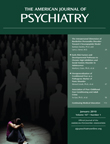To the Editor: In their article, published in the October 2009 issue of the Journal, Dan G. Blazer, M.D., Ph.D., and Li-Tzy Wu, Sc.D., demonstrated that more than 14% of men and 3% of women in the ≥65-year-old age group reported binge drinking (1). Therefore, alcohol binge drinking among middle-aged and elderly adults seems to be of public health concern, as concluded by the authors.
Binge drinking is characterized by the consumption of alcohol leading to intoxication (drinking to get drunk), often measured as having more than five drinks on the same occasion (2). The costs of this drinking pattern include increased risk for numerous acute adverse health and social events (e.g., unintentional and intentional injuries, high blood pressure, stroke and other cardiovascular diseases, liver disease, neurological damage, poor control of diabetes) (1, 3). These health costs may be particularly aggravated by a binge pattern of alcohol drinking in later life when natural body defenses decrease.
It is well known that individuals who binge drink may benefit from screening for substance use and brief intervention or counseling as appropriate (1). However, binge drinking behaviors in middle-aged and elderly adults may be easily missed in clinical settings because these individuals often do not report overt stress at the time of the interview, self-reports are subject to a variety of biases associated with memory errors and underreporting (i.e., cognitive impairment and dementia risks increase with age), and individuals who suffer from severe health problems associated with alcohol drinking (e.g., psychiatric) are often unlikely and/or unable to attend interview/brief interventions (1). Moreover, the CAGE questionnaire, which is frequently used to screen for alcohol problems, is of little value in identifying individuals who binge drink (1).
In young people, inadequate detection by alcohol abuse markers has been reported (most likely as a result of the effect of relatively light drinking and rapid normalization of elevated markers), and thus the use of questionnaires has been found to be superior for alcohol abuse screening in this population (2, 4). In older adults, the sensitivity of biomarkers in the detection of alcohol abuse is generally much greater than that for young persons (4). Hence, feedback given to the older binge drinker on the basis of potential biomarker levels may be important for the prevention of binge drinking in this age group. However, this issue requires further research.
The burden and health costs associated with binge drinking among middle-aged and elderly adults seem to be an alarming public health issue. Therefore, the problem of binge drinking among older adults indicates the need for strengthened global prevention.

